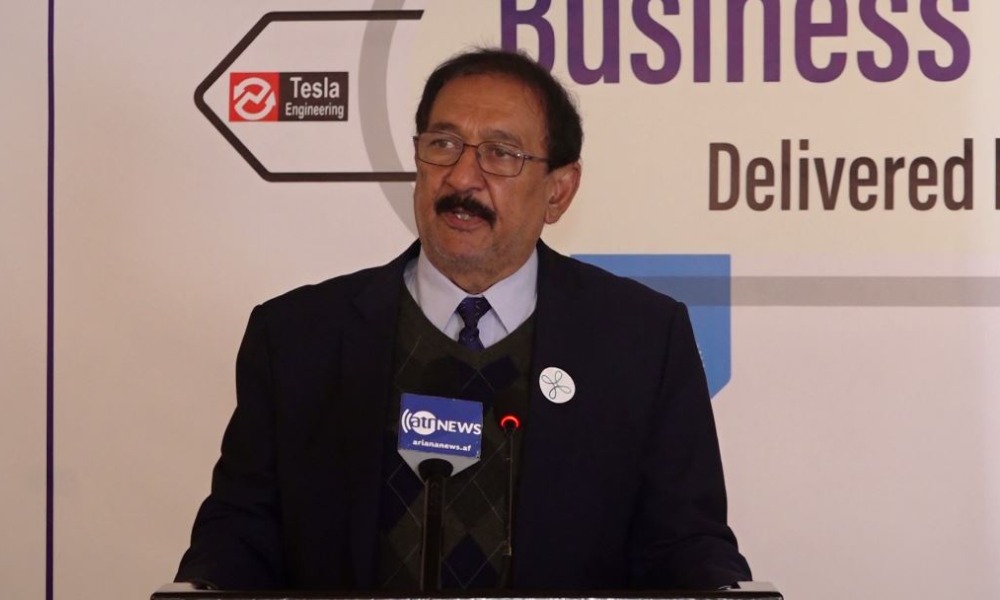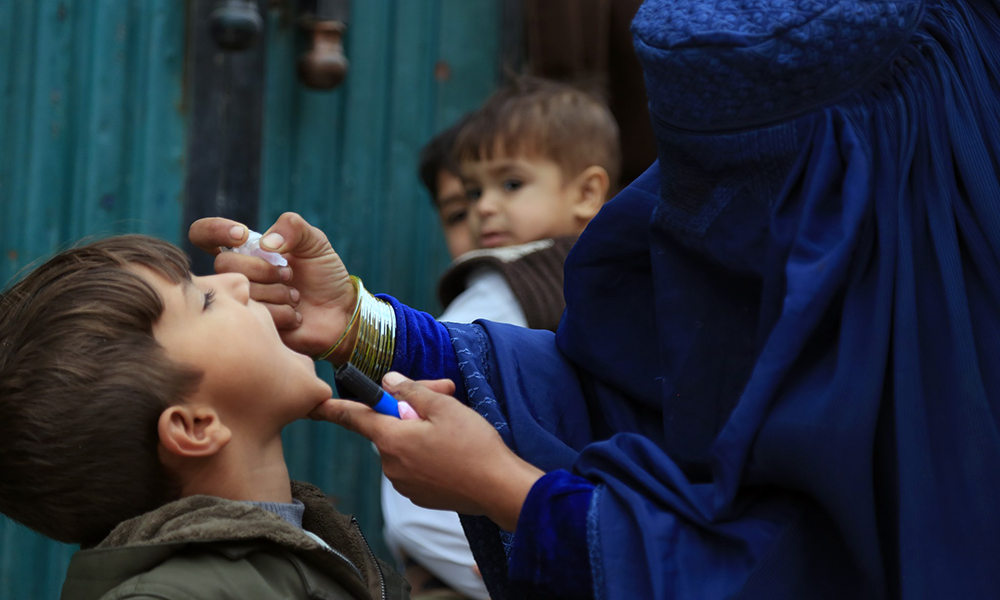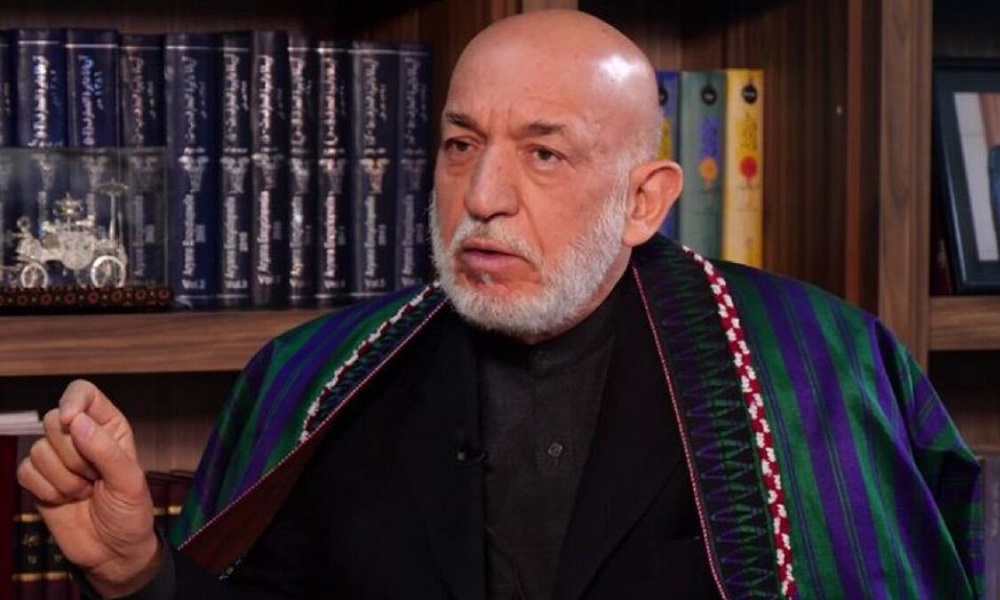Latest News
Bayat Foundation and Cordaid partner to help 20 SME entrepreneurs

The Bayat Foundation in partnership with Cordaid in Afghanistan said on Thursday they have successfully trained entrepreneurs from 20 small and medium-sized enterprises (SMEs) in Kabul in the past year.
Head of Cordaid in Afghanistan, Jaap van Hierden said they will continue with the program, to help young entrepreneurs develop their business skills, grow their businesses and train them in the processes around job seekers and hiring of staff.
Representatives from Bayat Foundation and Cordaid both said these entrepreneurs will be able to grow their businesses if they apply the lessons they have learned.
Ahsanullah Aryanzai, from Bayat Foundation, said their participation in the program will continue.
“We hope that the young generation will reach their goals and select a path of development, by [taking on] big economic projects, and innovations; they have the capacity to do that,” said Aryanzai.
Meanwhile, Hamidullah Karimi, head of the entrepreneurial division at the Ministry of Industry and Commerce said the government wants to work with the private sector in order to boost SMEs.
“We as a government want to help the private sector and the private sector can also help the government.
“Without government, the private sector can not reach its full potential and without the private sector government can’t succeed in economic development,” he said.
The entrepreneurs who completed the skills development program meanwhile praised the two organizations for having helped them learn the skills needed to succeed.
“It was a very nice program and we are happy because we learned many things,” said one entrepreneur.
“It is a very good program, especially if you don’t have much knowledge about trade and business practices,” another entrepreneur said.
Cordaid has been active in Afghanistan since 2001 and works to help achieve a stable and peaceful Afghanistan. The organization works in six thematic areas: inclusive peace, security and justice, humanitarian aid, resilience, private sector development, and healthcare.
The Bayat Foundation was established in 2006 and has since helped rebuild Afghanistan as well as deliver hope and support to the neediest and most at-risk Afghans.
Active in numerous sectors in the country, the Bayat Foundation also provides food and clothing to the needy; maternity care for women before and during childbirth and to newborn babies; orphan care and education; competitive sports to challenge the youth; and entrepreneurship programs for widows, women and youth.
The Foundation’s goal is to rekindle a healthy and hopeful base so that all Afghans have the opportunity to prosper.
Latest News
A new polio vaccination campaign is set to launch in Afghanistan
Afghanistan and Pakistan are the only two countries in the world where polio has not been eradicated.

The “Afghanistan Polio-Free” organization announced that a new round of polio vaccinations will begin on Monday, December 23, in various provinces of Afghanistan.
The organization did not specify which provinces will be targeted or how long the vaccination campaign will last.
Afghanistan and Pakistan are the only two countries in the world where polio has not been eradicated.
On December 4, 2023, the World Health Organization (WHO) issued a statement reporting a 283% increase in polio cases in Afghanistan. According to the WHO, the number of positive environmental samples for wild poliovirus type 1 in Afghanistan in 2024 reached 84, compared to 62 cases in 2023.
The Ministry of Public Health claimed in November 2024 that no new cases of polio had been reported in Afghanistan for the year.
Latest News
G7 envoys urge national dialogue for lasting stability in Afghanistan

Special Representatives of the Group of Seven (G7), including the European Union, have emphasized the importance of a national dialogue for achieving long-term stability in Afghanistan.
Following a meeting on Afghanistan in Geneva, Switzerland, G7 special envoys issued a joint statement calling for the restoration of women's rights and urging the Islamic Emirate to fight terrorism.
The statement reads: "Achieving sustainable peace and stability requires credible governance that represents all segments of Afghan society."
The representatives also expressed concern over the IEA’s decision to ban girls from attending medical institutes, warning that it will have devastating consequences for the citizens, particularly mothers and their infants.
The statement described this ban as unacceptable and called on the Afghan authorities to lift it immediately.
Earlier, countries and international organizations had called for the removal of restrictions on the education and employment of women and girls, emphasizing the need for a national dialogue.
In response to these concerns, IEA has repeatedly stated that it will not allow interference in the internal affairs of the country.
The G7 special envoys also expressed their concern about the recent terrorist attacks in Kabul and the surrounding region, warning that terrorism remains a serious threat to Afghanistan's security. They confirmed the actions of the IEA against Daesh but stressed the need for more decisive measures.
Latest News
Afghanistan’s bright future lies in educating girls: Karzai

Hamid Karzai, the former president of Afghanistan, says the demand of Afghan girls for the reopening of schools and universities is their fundamental right and adds that Afghanistan cannot have a bright future without ensuring access to education for girls.
In a statement on his X (formerly Twitter) account, Karzai said: "The demand and voice of our country’s girls for education and knowledge is a rightful one and crucial for a prosperous Afghanistan."
He further emphasized, "Empowering the youth—both girls and boys—is the only way to achieve self-reliance, break the cycle of poverty, and drive the development and prosperity of society."
Karzai underscored that education is vital for Afghanistan’s growth and development, expressing hope that the doors of schools and universities for girls will be reopened as soon as possible.
-

 Sport5 days ago
Sport5 days agoLanka T10: All three matches abandoned due to rain
-

 Latest News5 days ago
Latest News5 days agoIndia hoping to import coal and marble from Afghanistan
-

 Sport4 days ago
Sport4 days agoZimbabwe’s opening ODI against Afghanistan abandoned
-

 Latest News5 days ago
Latest News5 days agoJapan announces $27.5 million aid package to Afghanistan
-

 Latest News1 day ago
Latest News1 day agoAfghan men must stand with women to support viable future of country: US envoy
-

 World3 days ago
World3 days agoNorth Korean troops suffer 100 deaths, struggling in drone warfare, South Korea says
-

 Latest News3 days ago
Latest News3 days agoTwo horror accidents on Kabul-Kandahar highway leave 52 dead
-

 International Sports4 days ago
International Sports4 days agoLanka T10: Kandy Bolts in at 4th spot in playoffs after thrilling day

























